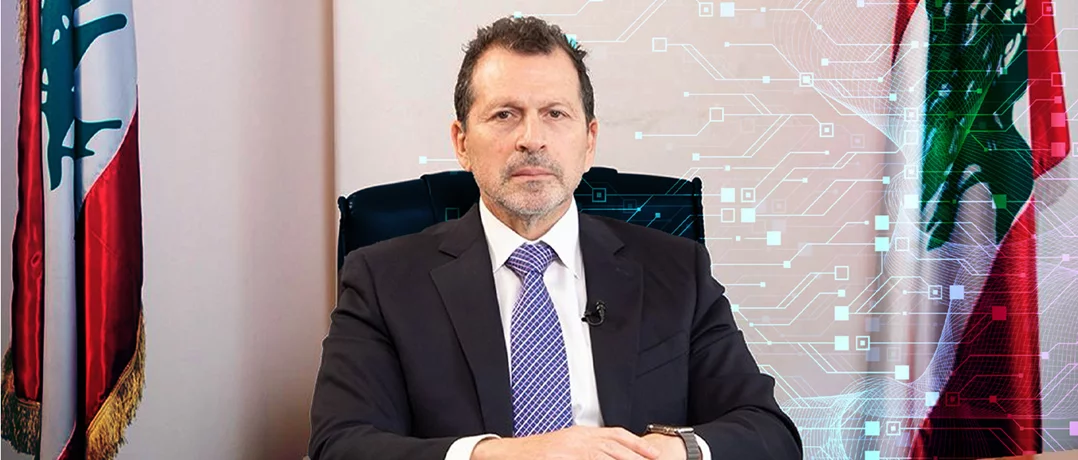Lebanon aims for a digital future with AI, smart infrastructure, innovation platforms, and inclusive technology growth.
Digital Lebanon 2030: The roadmap begins

Lebanon took a decisive step toward a digital future as it hosted the Lebanon Tech, AI & Innovation Summit 2025, organized by the Ministry of State for Technology and Artificial Intelligence (MITAI) under the patronage and presence of Prime Minister Nawaf Salam.
Held on Friday, November 7, the event marked the official launch of Lebanon’s National Digital Transformation and AI Strategy 2025–2030, an ambitious roadmap to modernize public institutions, strengthen governance, and position Lebanon as a regional hub for innovation and technological progress. The strategy aims to raise the contribution of AI and digital initiatives to around 10% of the national GDP by 2030, equivalent to US$3.5 billion, up from US$1.3 billion in 2025.
Building the Foundations of a Digital State
At the core of this transformation lies a comprehensive legal and institutional framework designed to secure Lebanon’s transition into a digital economy. The MITAI Law, already approved by the Council of Ministers, forms the legislative foundation of this shift, while the Digital Authority draft law, currently under review in Parliament, will regulate the digital sector and ensure accountability across public services.
Complementing this legal groundwork are several new initiatives announced by the Ministry, including the establishment of the Digi-Tech Foundation, the creation of Special Technology Economic Zones, and the introduction of privacy and security baselines supported by a data governance framework. Together, these steps aim to reinforce transparency, trust, and safety as cornerstones of Lebanon’s digital economy.
A central element of the national plan is the National Digital Infrastructure (NDI), which integrates broadband expansion, sovereign cloud systems, and a secure digital identity network. This infrastructure is designed to serve as the backbone of the country’s digital ecosystem and enable the launch of a nationwide digital mission by 2025.
Empowering Talent and Innovation
Lebanon’s human capital remains one of its greatest assets. With over 10,700 ICT professionals and 6,400 software engineers, the country ranks among the top ten globally for digital talent. The new strategy seeks to harness this potential by fostering innovation labs, AI research centers, and startup acceleration programs that nurture creativity, technical expertise, and entrepreneurship.
Programs such as AI scholarships, diaspora fellowships, and innovation sandboxes are expected to retain local talent and attract international collaboration. By 2030, the government aims to increase fivefold the number of trained and retained AI engineers, creating a vibrant, export-ready digital workforce that can compete globally and drive Lebanon’s technological growth.
Driving Growth Through Partnerships
Public-private partnerships and international collaborations will be the engines propelling this transformation forward. Initiatives such as the Lebanon Angel Network and the World Economic Forum AI Initiative are expected to connect Lebanese innovators with global investors, linking local startups to international markets and funding opportunities.
The government’s digital transformation model is built on principles of efficiency, collaboration, and trust. The approach emphasizes shared digital platforms across ministries to avoid duplication, tangible results that directly benefit citizens, and a strong culture of cooperation between the public and private sectors. It also prioritizes security, inclusivity, and privacy, ensuring that technology development remains accessible, ethical, and safe for all users.
National Priorities for a Smarter Lebanon
The strategy identifies six national priorities that define Lebanon’s digital transformation roadmap. The first centers on National Digital Infrastructure, which aims to create interoperable systems across ministries, enabling smoother coordination and service delivery. The second focuses on Digital Identity and Trust, introducing a national digital ID and public key infrastructure system to safeguard citizen data and streamline government services.
The third priority, Unified Digital Payments, builds on the Lebanon Payments Strategy 2024, expanding e-payment systems to strengthen transparency and financial inclusion. The fourth, AI for Governance, envisions using artificial intelligence to improve efficiency, detect fraud, and enhance service delivery, all under the oversight of a National AI Advisory Board. Meanwhile, Smart Service Delivery will focus on automating bureaucratic processes such as property registration and business licensing to make state services faster and more accessible. Finally, Innovation Platforms will encourage AI experimentation through open data initiatives and regulatory sandboxes, fostering a culture of creativity and technological exploration.
Challenges and Opportunities
Lebanon’s path toward digital transformation is ambitious but not without challenges. Internet connectivity remains below regional averages, with fixed broadband speeds at 9.21 Mbps and mobile speeds at 30.83 Mbps, while 5G coverage remains under 1%. The ongoing electricity crisis, which limits citizens to just a few hours of state power per day, also poses a significant barrier to digital progress.
However, the opportunities are equally compelling. Lebanon’s tech exports reached US$384 million in 2022, marking a 450% annual growth. With over 550 ICT companies and a strong education system ranked fourth globally in mathematics and science, Lebanon has both the talent and intellectual capital to transform these challenges into momentum for growth.
Ensuring a Resilient and Sustainable Digital Future
To ensure long-term sustainability, the government’s strategy rests on four key principles: legal continuity for digital projects regardless of political changes, coordination through interministerial taskforces, capacity building through public-private partnerships, and talent retention through diaspora engagement and advanced training programs. These pillars aim to create a stable foundation for innovation, protecting progress from Lebanon’s cyclical political and economic disruptions.
Vision 2030: A Connected, Smart Lebanon
By 2030, Lebanon envisions a digitally connected state where 80% of government services are available online, public institutions operate on cloud-based systems, and the value of AI and technology investments rises from US$16 million in 2021 to US$500 million. Key projects such as Code4Lebanon, AI for Municipalities, and the Fund for Tech and Digital Transformation embody this vision, alongside initiatives like the AI Judicial Tool and the Support to Digital ID Project.
Today’s summit is not just the unveiling of a policy plan, it is a declaration of intent. Lebanon is signaling its readiness to embrace a digital era where innovation drives governance, technology fuels growth, and inclusion becomes the cornerstone of national progress.



